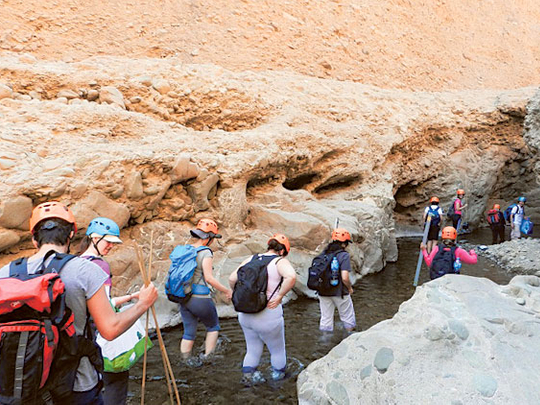
Fujairah: More than 400 dragonflies in the Wadi Wurayah National Park of Fujairah have been tagged and studied for the past year to ensure the health of the biodiversity in the area.
The invasive Tilapia that are destroying the balance in the wadis have also been eradicated.
Conservationists from Emirates Wildlife Society, in association with WWF (EWS-WWF (EWS-WWF), with the help of volunteer teams, have completed the tagging since September 2013 in a bid to prevent further damage to the area’s biodiversity. The team has conducted more than 275 freshwater tests, explored 30 bodies of water in the wadi and measured approximately 300 toads to help build a greater picture of the health of the area’s ecosystem.
The activities are part of the Water Research and Learning Programme, a first-of-its-kind in the Middle East, which is committed to researching the biodiversity of freshwater areas and spreading awareness on freshwater issues.
Eight main research activities inside Wadi Wurayah National Park, including a freshwater watch, dragonfly tagging, and camera trapping, among others, have been conducted since the launch of the programme last year.
Ida Tillisch, EWS-WWF director-general, said: “Freshwater is a scarce yet important commodity, especially in the Middle East. It is important to better understand freshwater ecosystems, such as those inside Wadi Wurayah National Park, by gathering important data that will help us in proposing robust conservation measures.”
Sabrin Rahman, Senior Manager Corporate Sustainability- HSBC Bank Middle East Limited that supports the programme, said volunteer conservationists also helped relocate the Garra fish (Garra barriemiae), diving beetles and damselfly larvae to secure water catchments in the national park before the planned eradication of the invasive Tilapia.
“Tilapia had been introduced by some visitors to the wadi before the gates were closed in the lower waterfall, and their rapid development at the expense of the native species was a matter of concern,” Rahman said.
The volunteers’ quick learning and understanding proved vital to ensuring the successful relocation of many wildlife that week.
“Together we are building a clearer picture of the health of Wadi Wurayah National Park’s ecosystem and as a result a greater understanding of how to best conserve it,” Eng Mohammad Al Afkham, Director-General of Fujairah Municipality, said.












